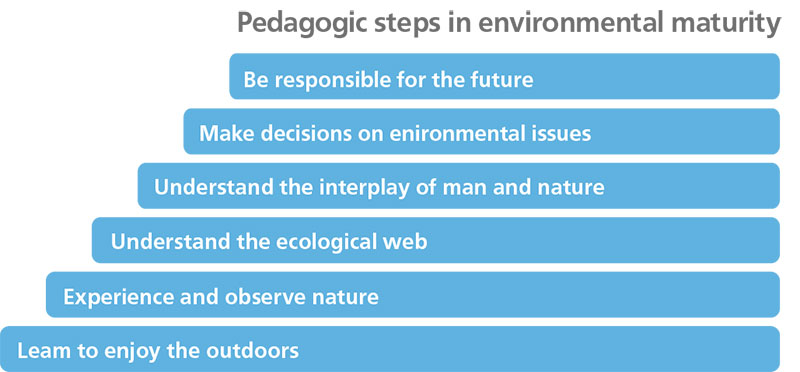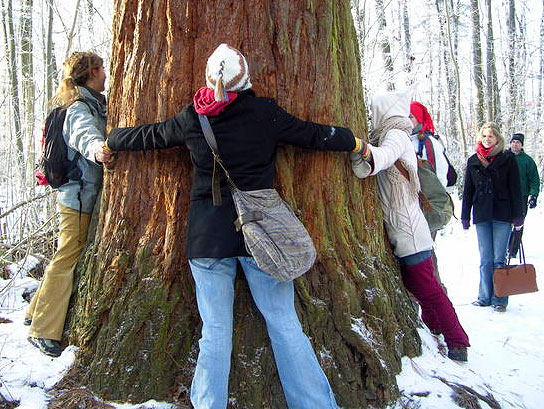Forestpedagogues shouldn´t mainly transmit knowledge but preferably motivate people to get conscious for taking responsibility. The forests and their sustainable management therefore is an excellent model for learning: In the forest sustainability can be understood and learned in a comprehensive way. The forests and their management is also a model which is sealing with a lot of values, services, advantages and offers for the human being. So forestpedgogy is able to give important pedagogical inputs for a huge spectrum of personal acting- and shaping-competences.
The European-Forestpedagogy-Network is trying to communicate these objectives by organizing an annual congress for experts and by documenting the results on the website www.forestpedagogics.eu. Actually the network is elaborating an Europe-wide action-plan, to enforce the importance of forestpedagogy. The most important aim of this plan is to ensure and to develop the quality forestpedagogy programs.
The Subgroup-Forestpedagogy is doing this by orientating on the step-model "Pedagogic steps in environmental maturity" (fig. 2), which was designed by the Norwegian Forestry Extension Institute.
Most of the traditional forestpedagogy-offers are already fulfilling the first 4 steps (learn to enjoy the outdoors, experience and observe nature, understand the ecological web, understand the interplay of man and nature), but forestpedagogues are especially challenged to give opportunities for making decisions on environmental issues (step 5) and to inspire the participants to take over concrete responsibilities and to grow mature in this responsibility (step 6). When this is successful, forestedagogy gives valuable contributions to Education for Sustainable Development (ESD).
People participating at well done forestpedagogy programs can learn about values like respect for nature, consideration to fellow-being and life-being, responsibility, tolerance, solidarity between generations as well as global and long-term thinking and acting. They can improve creativity and imagination, cooperative- and action-competences, interdisciplinary thinking, curiosity, concentration and social behaviour. They are offered free space for self-discovering-learning, nature-near living spaces, natural habitats and rich biodiversity. And this also stimulates contemplation and reflection about the results of acting, the own role in the context of nature or society and the possibilities to change the own acting and attitudes in the everyday life.
The networks homepage indicates that the last ten years of forestpedagogy in Europe are full of success-stories in a constantly increasing number of European states. Meanwhile the exchange of best-practice and networking for forestpedagogy in Europe is highly developed. In the FCN-Subgroup-Forestpedagogy 14 states are operatively cooperating. Furthermore projects and programs increasingly address to new target groups. Quality standards, education and certification concepts developed as well as the quality of forestpedagogues and their offers.
Looking at the future forestpedagogy is still challenged to climb the higher steps of ESD. Forestpedagogues must intensify the dialogue with groups of all forest-related interests in society and with partners from education. Therefore forestpedagogogues must identify urgent topics in society (for example health, energy, climate change or sustainable education) and develop good fitting forestpedagogy-offers to get into a fruitful discussion about these themes. If the different actors are able to succeed in that, forestpedagogy will enter political dimensions and so awareness for forestpedagogy in society and policy will increase.

Fig. 2:The six steps are describing the development towards a mature competence in Education for Sustainable Development (ESD) (Bjørn Helge Bjørnstad, Forestry Extension Institute, Norway; "Pedagogic steps in environmental maturity", 2013).

